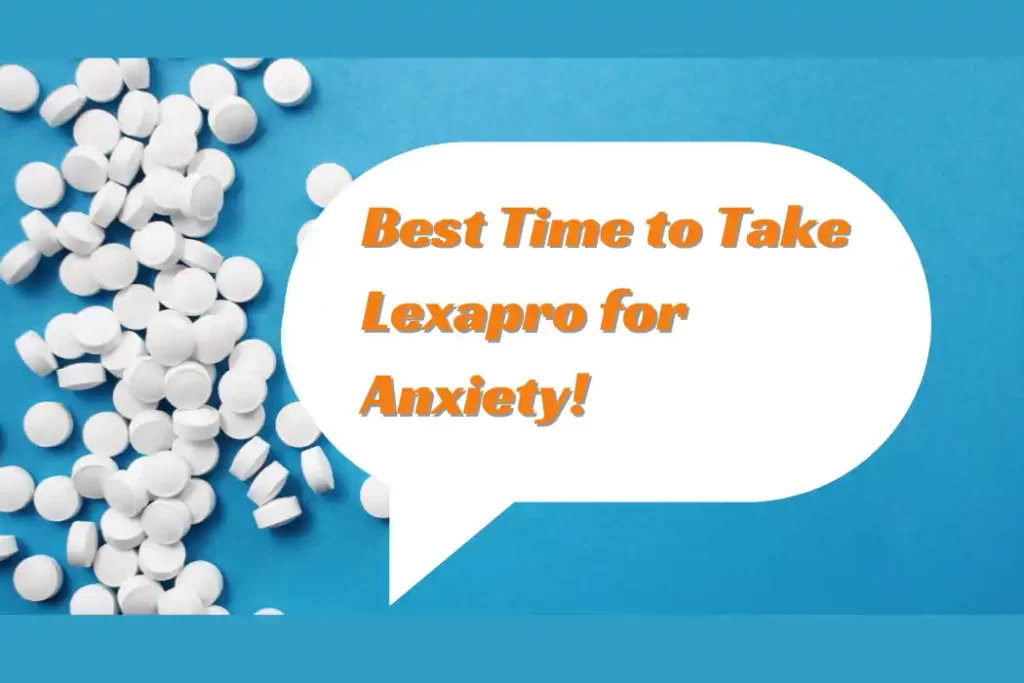Struggling with anxiety can feel like navigating a maze in the dark. In the quest for relief, the timing of medication often holds the key. When it comes to managing anxiety with Lexapro, the question looms: What is the best time to take Lexapro for anxiety? Understanding the nuances of timing could be the pivotal factor in harnessing its benefits and finding respite from the grip of anxiety. Let’s illuminate this path and uncover the significance of timing in the journey towards alleviating anxiety with Lexapro.
What is Lexapro and How Does it Work?
Lexapro, also known as Escitalopram, belongs to the class of medications called selective serotonin reuptake inhibitors (SSRIs). This drug works by increasing serotonin levels in the brain, a neurotransmitter linked to mood regulation. By preventing the reabsorption of serotonin, Lexapro helps maintain higher levels of this crucial chemical, ultimately easing anxiety symptoms.
Read more about Ofloxacin Ear Drops and Ofloxacin Eye Drops.
Understanding Anxiety Disorders
Before diving into the timing of Lexapro intake, it’s crucial to comprehend anxiety disorders. They encompass various conditions, including generalized anxiety disorder (GAD), social anxiety disorder, panic disorder, and specific phobias. These disorders cause excessive worry, fear, and nervousness, often leading to disruptions in daily life.
The Role of Timing in Lexapro’s Effectiveness
Timing your Lexapro intake could significantly impact its effectiveness in managing anxiety. Most healthcare providers suggest taking Lexapro in the morning or evening. However, the ideal time may vary from person to person, depending on individual responses and side effects.

Morning vs. Evening Dosing: Best Time to Take Lexapro for Anxiety
Morning Dosing
Taking Lexapro in the morning has its advantages. It can provide a boost of energy, potentially aiding in combating fatigue or drowsiness during the day. Furthermore, morning dosing might align better with one’s routine, making it easier to remember to take the medication consistently.
Evening Dosing
On the flip side, some individuals find that taking Lexapro in the evening helps mitigate side effects like insomnia or sleep disturbances. By taking it before bed, the sedative effects might facilitate better sleep, improving overall well-being.
Individual Variations and Personalized Timing
Individual differences play a significant role in determining the best time to take Lexapro. Factors such as personal schedules, response to medication, and potential side effects should all be considered. Consulting a healthcare professional becomes imperative to tailor the timing based on individual needs.
Factors Influencing the Optimal Timing
Body’s Response to Medication
Each person’s body responds uniquely to medication. While some might experience increased alertness with morning doses, others might find it disrupts their sleep. Being attuned to how your body reacts to Lexapro aids in determining the most suitable timing.
Side Effects Management
Considering and managing side effects like drowsiness, insomnia, or nausea can impact the timing of Lexapro intake. Adjusting the timing in consultation with a healthcare provider can help alleviate these adverse effects.
Conclusion
In the intricate tapestry of anxiety management, discovering the optimal time to take Lexapro emerges as a vital consideration. The journey towards relief from anxiety is not solely about the medication itself, but rather about synchronizing its intake with individual rhythms and needs. Finding the best time to take Lexapro for anxiety is a personalized expedition, influenced by individual responses and tailored adjustments. By partnering with healthcare professionals, attuning to personal cues, and navigating the ebbs and flows of one’s body, one can unlock the full potential of Lexapro. Embrace this journey, honor your body’s signals, and embrace the prospect of a life with reduced anxiety, knowing that the right timing may indeed be the beacon towards a calmer, more balanced existence.


